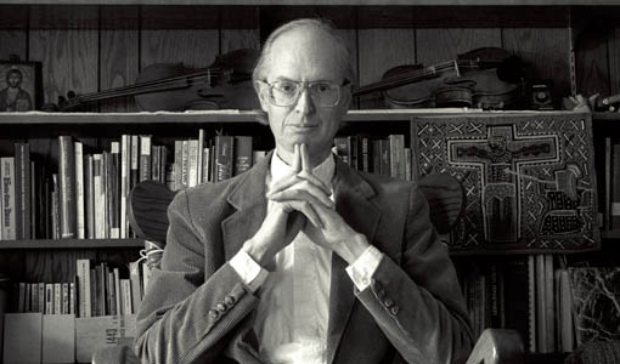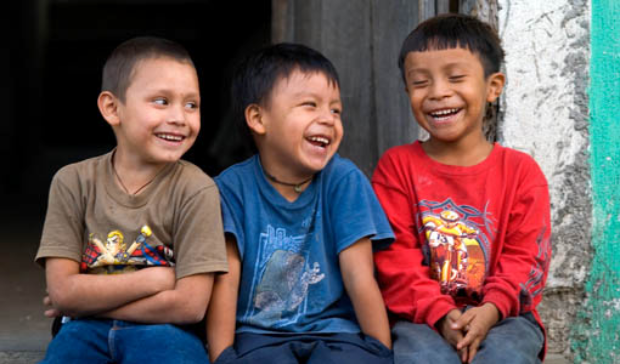In 1985, at the height of anxiety over President Ronald Reagan’s buildup of nuclear missiles in Europe and serious fears of a nuclear holocaust, Archbishop John Roach asked St. Thomas President Monsignor Terrence Murphy to “do something” about the bishops’ 1983 pastoral letter on nuclear war.
The committee charged with designing a response consulted Gordon Zahn, a St. Thomas alumnus with a national reputation in issues of justice and peace. We were debating whether to create a specific academic program dedicated to justice and peace or to infuse issues of justice and peace across the entire St. Thomas curriculum.
Zahn advised that a serious infusion of such concerns across the curriculum would not last unless we had a core program dedicated to justice and peace, so we developed what has become the Justice and Peace Studies Program. Experience shows that the program and its students and faculty have energized academic study and practical action for justice and peace across the university.
St. Thomas describes its mission as follows: “Inspired by Catholic intellectual tradition, the University of St. Thomas educates students to be morally responsible leaders who think critically, act wisely and work skillfully to advance the common good.”
By their nature, morally responsible leaders seek out areas of injustice and human suffering, and work to resolve those issues. At St. Thomas we teach students to serve the needs of others through existing societal structures – economic, political, social, educational and legal systems. And it is the first level of moral responsibility to work within these structures with honesty, integrity and compassion.
A deeper level of moral responsibility occurs when we witness the structures that allow, encourage or force injustice. It is then that we must confront the indiscretions and offer practical alternatives.
In his encyclical letter Sollicitudo Rei Socialis, Pope John Paul II emphasized structures of sin “which … are rooted in personal sin, and thus always linked to the concrete acts of individuals who introduce these structures, consolidate them and make them difficult to remove. And thus they grow stronger, spread, and become the source of other sins, and so influence people’s behavior.”
These structures are “the result of the accumulation and concentration of many personal sins … of those who cause or support evil or who exploit it; of those who are in a position to avoid, eliminate or at least limit certain social evils but who fail to do so out of laziness, fear or the conspiracy of silence, through secret complicity or indifference; of those who take refuge in the supposed impossibility of changing the world, and also of those who sidestep the effort and sacrifice required.”
Morally responsible leaders need to not only think critically about how human suffering is caused by these structures in society, but they also must act wisely and work skillfully to relieve human suffering and change the structures that cause it. In other words, we cannot know and yet refuse to act.
Programs like VISION and off-campus study or service that confront social problems help St. Thomas students experience firsthand the suffering caused by unjust structures. They give a human face to injustice, and help overcome the “laziness” and “indifference” mentioned by Pope John Paul. Courses in the Justice and Peace Studies Program provide students with the critical thinking skills that help them to understand structures of sin or injustice. These skills then carry over to other classes and disciplines, and help to emphasize creative, compassionate and nonviolent action. The program itself promotes skillful work for justice and peace, especially with its courses in active nonviolence and conflict resolution.
Some assert that such concern for changing status-quo structures represents a misuse of the Christian message. But in 1971, the Catholic bishops of the world said, “We have … been able to perceive the serious injustices which are building around the world of men a network of domination, oppression and abuses which stifle freedom and which keep the greater part of humanity from sharing in the building up and enjoyment of a more just and more fraternal world. ...Action on behalf of justice and participation in the transformation of the world fully appear to us as a constitutive dimension of the preaching of the gospel, or, in other words, of the Church’s mission for the redemption of the human race and its liberation from every oppressive situation” (emphasis added).
The fact that our Justice and Peace Studies Program receives strong administrative, faculty, staff and student support says a lot about who we are as a community.
About the author: Father David Smith is the founding and now former director of the St. Thomas Justice and Peace Studies Program. He retired from the university in spring 2007 and his book, Understanding World Religions: A Roadmap for Justice and Peace, will be published by Rowman & Littlefield this fall.







